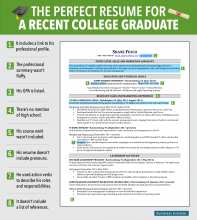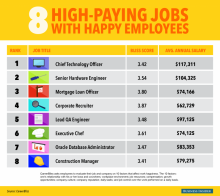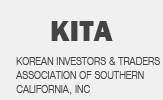
Overcommitted. Distracted. Stressed out. Stretched too thin. This is how many of us describe ourselves today. I hear it from men and women; from the young and the old; from executives, MBA students, doctors, retailers, artisans, research scientists, soldiers, stay-at-home parents, teachers, and engineers around the world. In an age of constant communication and economic pressure, everyone is struggling to have meaningful work, domestic bliss, community engagement, and a satisfying inner life. Some have already given up on the idea of having it all: As I discovered last year in a study comparing undergraduates from the classes of 1992 and 2012 at the University of Pennsylvania’s Wharton School, a significant number of Millennials (the generation born from 1980 to 2000) are deciding not to become parents, because they don’t see how they can fit children into their busy lives.
A commitment to better “work/life balance” isn’t the solution. As I’ve argued for a long time—and as many more people are now asserting—balance is bunk. It’s a misguided metaphor because it assumes we must always make trade-offs among the four main aspects of our lives: work or school, home or family (however you define that), community (friends, neighbors, religious or social groups), and self (mind, body, spirit). A more realistic and more gratifying goal is better integration between work and the rest of life through the pursuit of four-way wins, which improve performance in all four dimensions.
Such integration starts with embracing three key principles—be real, be whole, and be innovative—that I described in a 2008 HBR article, “Be a Better Leader, Have a Richer Life.” It takes certain skills to bring those principles to life. In my 30 years as a professor, researcher, consultant, and executive, as I’ve studied and served thousands of people, I’ve found 18 specific skills that foster greater alignment and harmony among the four life domains. In this article I describe those skills and offer exercises—drawn from the latest findings in organizational psychology and related fields—to help you hone a few of the skills that business professionals often find most difficult to master. While there’s more you can do to instill the three principles (you’ll find a wider range of exercises in my new book, Leading the Life You Want: Skills for Integrating Work and Life), the advice offered here will help you move down the right path.
Skills for Being Real
For well over a decade I’ve run a program called Total Leadership that teaches the three principles to executives, MBA candidates, and many others. It starts with a focus on being real—how to act with authenticity by clarifying what’s important, wherever you are, whatever you’re doing. That requires you to:
- Know what matters.
- Embody values consistently.
- Align actions with values.
- Convey values with stories.
- Envision your legacy.
- Hold yourself accountable.
The ability to do the first two things is especially crucial. Let’s begin with how to know what matters. One exercise that enhances this skill, called four circles, has you examine the importance and congruence of your various roles and responsibilities in life. (You can do it online at this free site:www.myfourcircles.com.) You start by drawing circles representing the four domains—work, home, community, and self—varying the sizes to reflect how much you value each. Next you move the circles to show whether and to what degree they overlap. At this point you think about the values, goals, interests, actions, and results you pursue in each domain. Are they compatible or in opposition? Imagine what your life would be like if your aspirations in all four circles, and the means by which you achieved them, lined up perfectly, like the concentric rings of a tree trunk. For most of us that’s an unattainable ideal, but what actions could you realistically take to move toward that kind of overlap? Could you change how you work, or even how you think about the purpose of your work, without diminishing the personal value you derive from it? Could you help your family to better see how your business life benefits them so that they would be more supportive of it?
A complementary exercise, called conversation starter, encourages people to embody values consistently. This involves bringing an object from your nonwork life (such as a family photograph, a travel memento, or a trophy) into the office. If a colleague mentions it, you explain what this part of your life means to you and how it helps you at work. Then you consider asking that person to bring his or her own conversation starter. You might also take something from your work to your home and talk to your roommates, spouse, kids, or dinner guests about it. Tell them about what you do and who you are in your role at work, focusing especially on what this might mean for them.
When Victoria, the head of marketing for a pharmaceutical company division, drew her four circles, she initially placed the biggest one, representing work, apart from all the rest. She didn’t see any real connection between her professional identity and her home, community, and inner lives. But when she began to talk about the separation with a few colleagues, friends, and family members, she came to realize that one major aspect of her mission as an executive—promoting greater health—was a lot more compatible with her other circles than she had thought.
She could also see how just a few small changes in approach might create much more overlap. For example, at home she started to talk more with her two daughters about the social impact of her business, sharing stories about all the ways in which her company’s medicines were saving lives. The girls responded with greater pride in, and understanding of, their mom’s commitment to work. As a team leader, Victoria began to reframe core drug-marketing tasks in terms of the products’ benefits to end users—who were all the children, spouses, parents, siblings, friends, or neighbors of someone—just like the families and communities she and her employees had. As a result, her group became more impassioned and hardworking, which ultimately eased her load and gave her more time for other pursuits. Perhaps most important, Victoria felt less guilt about the way she was spending her time and energy, and newly secure in her mission at the office as well as in her family’s support.
BY STEWART D. FRIEDMAN
Work Source: http://hbr.org/2014/09/work-home-community-self/ar/1













































